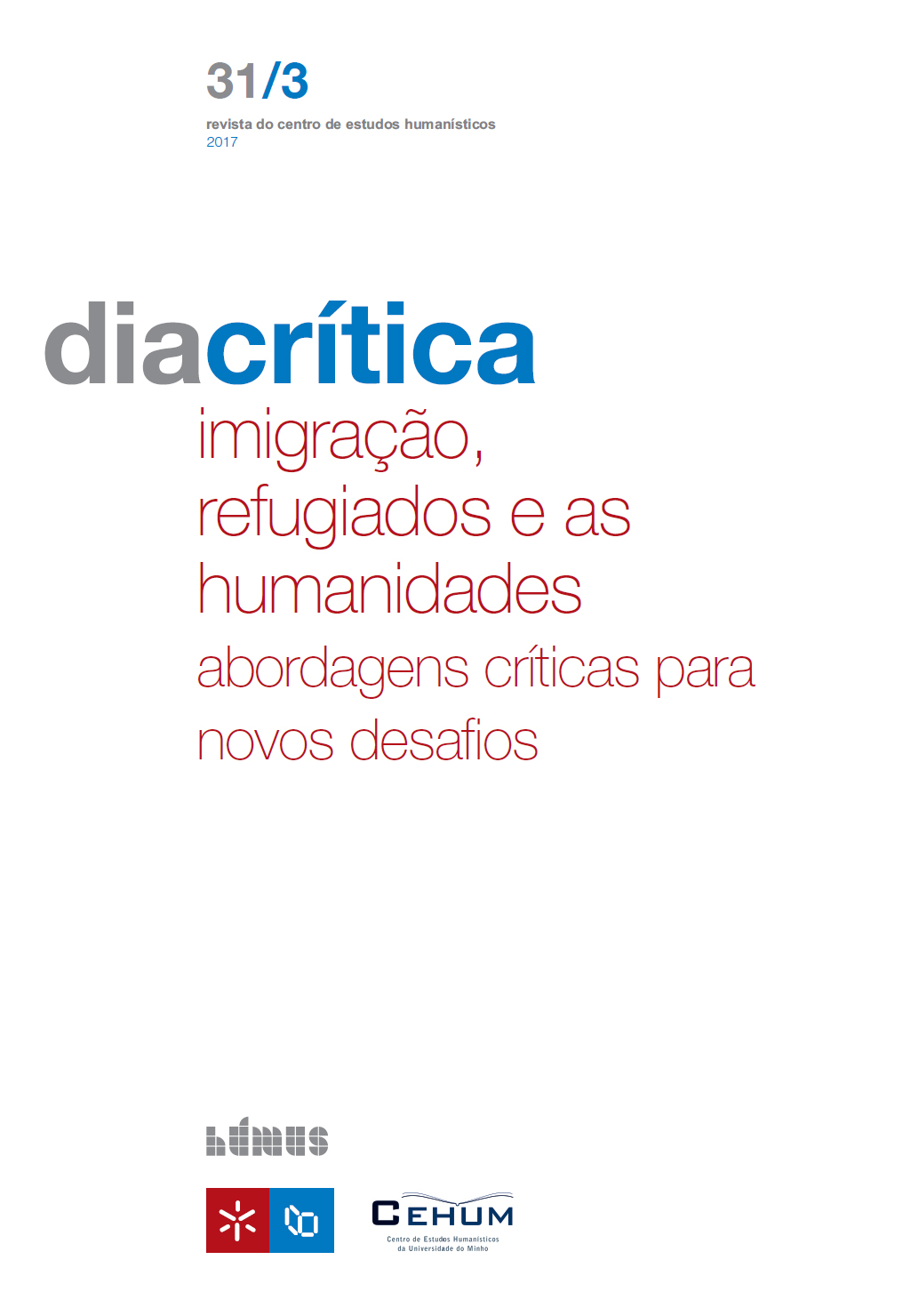NAMING DISPLACED PEOPLE: NEW PATTERNS IN MEDIA DISCOURSE? A DISCOURSE ANALYSIS OF LE MONDE AND LE FIGARO
DOI:
https://doi.org/10.21814/diacritica.5174Keywords:
migrants, refugees, lexical controversy, media discourse, typificationsAbstract
The migrant crisis has received huge media coverage and has been the subject of many social controversies, among which the one sparked by Al Jazeera regarding the words migrant and refugee during the summer 2015. !is study addresses the
question of whether the lexical debate that followed had a permanent impact in journalistic writing patterns, by analysing media typifications of displaced people. Using a mixed methodology of corpus linguistics and discourse analysis, we analysed
a corpus of 376,217 words from the two main French broadsheet newspapers, Le Monde and Le Figaro, in order to observe if the lexical debate influenced the choice of words of the journalists. !e results of the study show that if some changes
are visible a$er the debate (a higher frequency of refugee as well as an accurate usage of this legal term), the latter did not prevent journalists from using the word migrant (in spite of the negative connotations Al Jazeera decried). !e study concludes
with some hypotheses about the future of those terms, as they will continue expanding their meaning and their referent according to historical events.
References
Baker, P.; Gabrielatos, C.; Khosravinik, M.; Krzyzanowski, M.; McEnery, T. & Wodak, R. (2008). A useful methodological synergy? Combining critical discourse analysis and corpus linguistics to examine discourses of refugees and asylum seekers in the UK press. Discourse Society, 19, 273-306. DOI: https://doi.org/10.1177/0957926508088962
Bauman, Z. (1998). Globalization. The Human Consequences. Cambridge: Polity Press.
Bosredon, B. & Tamba, I. (1992). Thème et titre de presse: les formules bisegmentales articulées par un "deux points". L'information grammaticale, 54, 36-44. DOI: https://doi.org/10.3406/igram.1992.3197
Calabrese, L. (2013). L'événement en discours. Presse et mémoire sociale. Louvain-la-Neuve: Academia.
Calabrese, L. (2018). Faut-il dire migrant ou réfugié ? Conflits lexico-sémantiques autour d'un problème public. Langages, 210, 105-122. DOI: https://doi.org/10.3917/lang.210.0105
Calabrese, L. (forthcoming). L'événement de réception. Un événement de parole du côté des publics. In Brigitte Sebbah (Ed.), Sciences de la société, 101.
Fang, Y.-J. (1994). "Riots" and Demonstrations in the Chinese Press: A Case Study of Language and Ideology. Discourse & Society, 5(4), 463-481. DOI: https://doi.org/10.1177/0957926594005004003
Gabrielatos, C. & Baker, P. (2008). Fleeing, Sneaking, Flooding. A corpus Analysis of Discursive Constructions of Refugees and Asylum Seekers in the UK Press, 1996-2005. Journal of English Linguistics, 36(1), 5-38. DOI: https://doi.org/10.1177/0075424207311247
Holmes, S. & Castañeda, H. (2016). Representing the "European refugee crisis" in Germany and beyond: Deservingness and difference, life and death. American Ethnologist, 43(1), 12-24. DOI: https://doi.org/10.1111/amet.12259
Kaufmann, L. (2006). Les voies de la déférence. Sur la nature des concepts sociopolitiques. Langage et société, 117, 89-115. DOI: https://doi.org/10.3917/ls.117.0089
Krieg-Planque, A. (2009). La notion de "formule" en analyse du discours. Besançon: Presses Universitaires de Franche-Comté. DOI: https://doi.org/10.4000/books.pufc.616
Kosnick, K. (2014). Mediating Migration: New Roles for (Mass) Media. InMedia, 5, 271-334. DOI: https://doi.org/10.4000/inmedia.761
Kyriakides, C. (2016). Words don't come easy. Al Jazeera's migrant-refugee distinction and the culture of (mis)trust. Current Sociology, 65(7), 933-952. DOI: https://doi.org/10.1177/0011392116658089
Palmer, M. (2006). Nommer les nouvelles du monde, in J. Arquembourg, G. Lochard and A. Mercier (coord.). Hermès, 46, 47-56. DOI: https://doi.org/10.4267/2042/24053
Searle, J. (1995). The Construction of Social Reality. New York: Simon & Schuster.
Siblot, P. (2001). De la dénomination à la nomination. Les dynamiques de la signifiance nominale et le propre du nom. Cahiers de praxématique, 36, 189-214. DOI: https://doi.org/10.4000/praxematique.368
Sinclair, J. (1991). Corpus Concordance Collocation. Oxford: Oxford University Press.
Stubbs, M. (1996). Text and Corpus Analysis. Oxford: Blackwell.
Valluy, J. (2005). La nouvelle Europe politique des camps d'exilés: genèse d'une source élitaire de phobie et de répression des étrangers. Cultures & Conflits, 57, 13-69. DOI: https://doi.org/10.4000/conflits.1726
Van Dijk, T. (1991). Racism and the Press. London/New York: Routledge.
Van Dijk, T. (2006). Discourse and manipulation. Discourse & Society, 17(3), 359-383. DOI: https://doi.org/10.1177/0957926506060250
Veniard, M. (2013). Du profil lexico-discursif de crise à la construction du sens social d'un événement. In Londei, D., Moirand, S., Reboul-Touré, S. & Reggiani, S. (Eds.). Direl'événement. Langage, mémoire, société (pp. 221-232). Paris: Presses Sorbonne Nouvelle.
Downloads
Published
How to Cite
Issue
Section
License
Copyright (c) 2023 Laura Calabrese, Valériane Mistiaen

This work is licensed under a Creative Commons Attribution-NonCommercial 4.0 International License.










